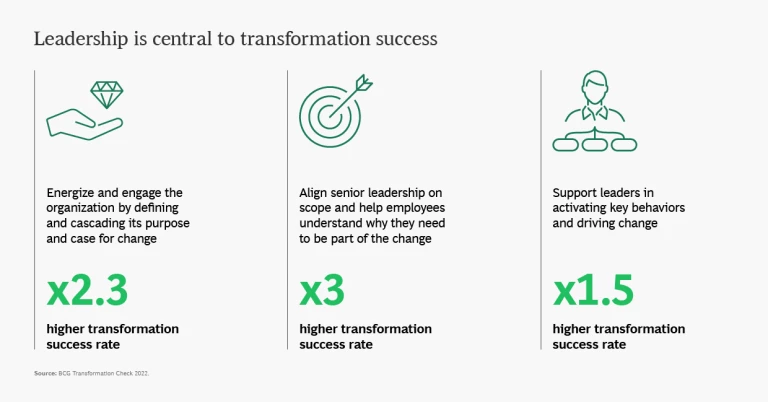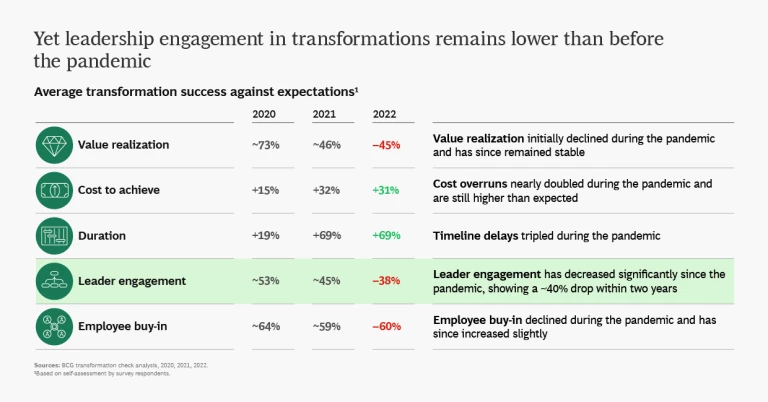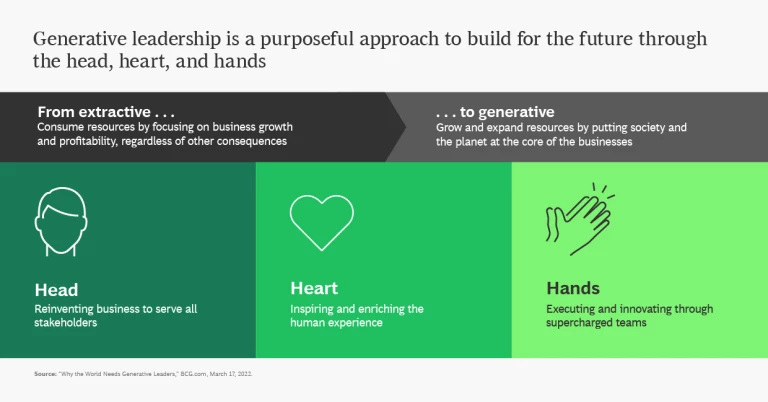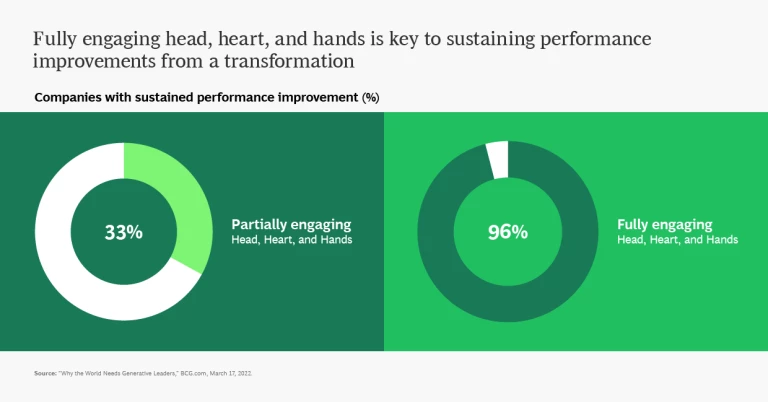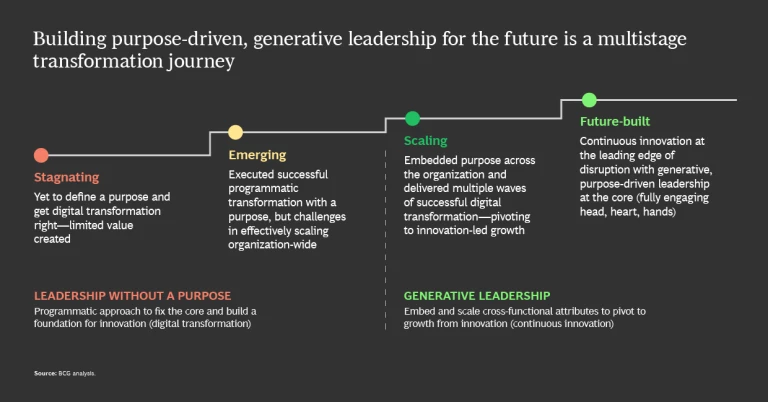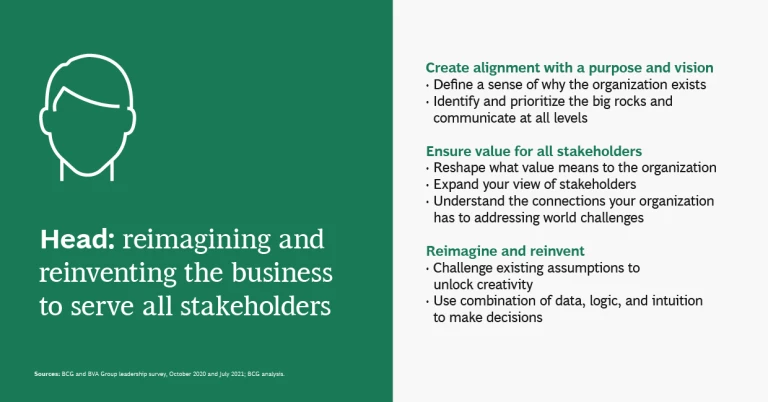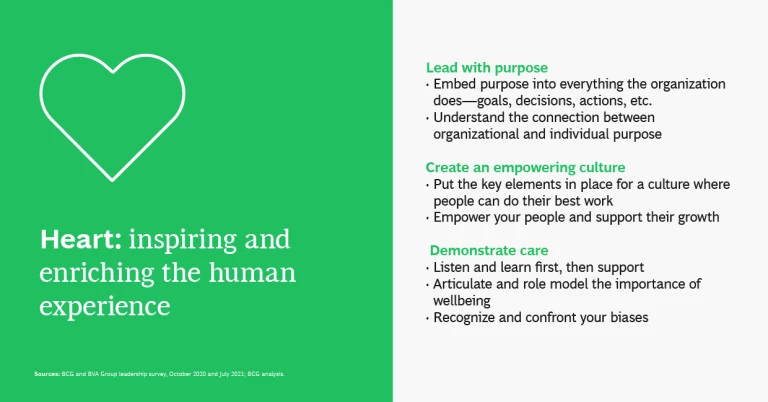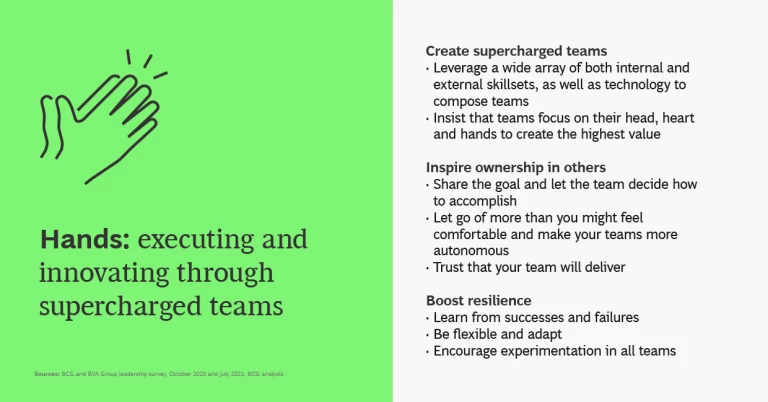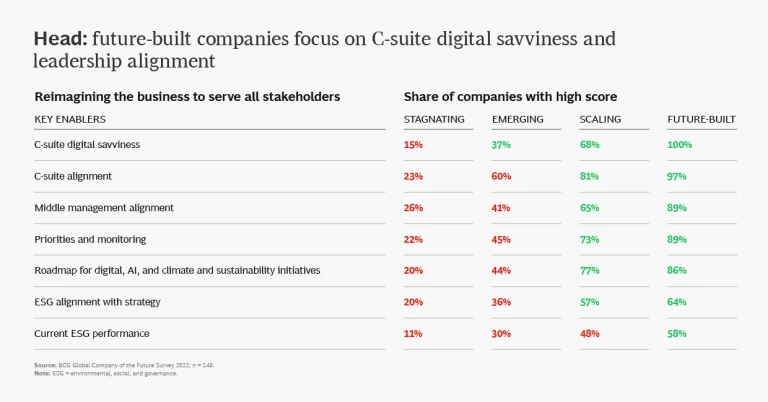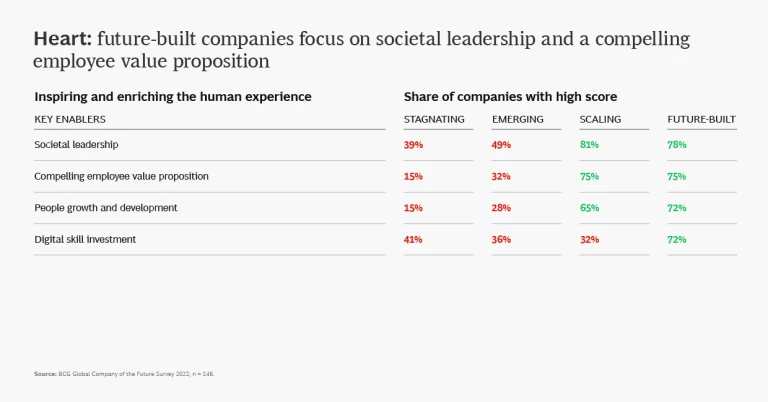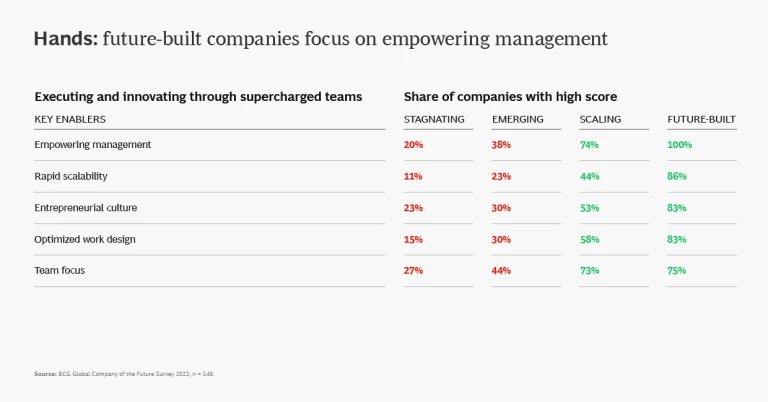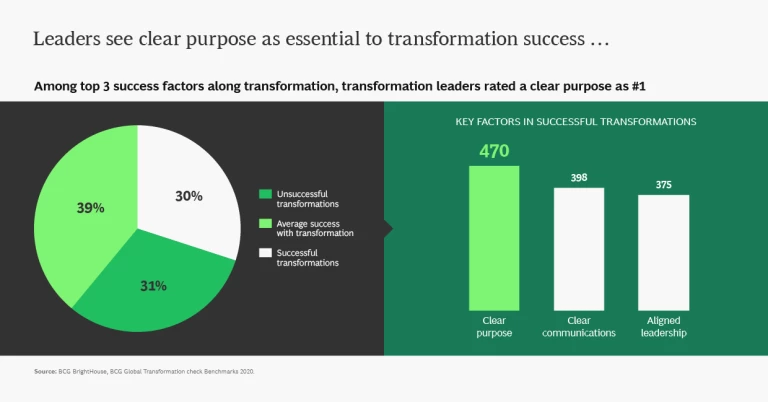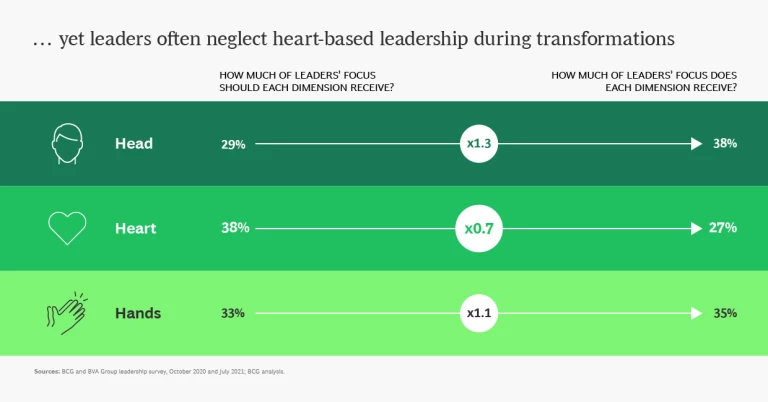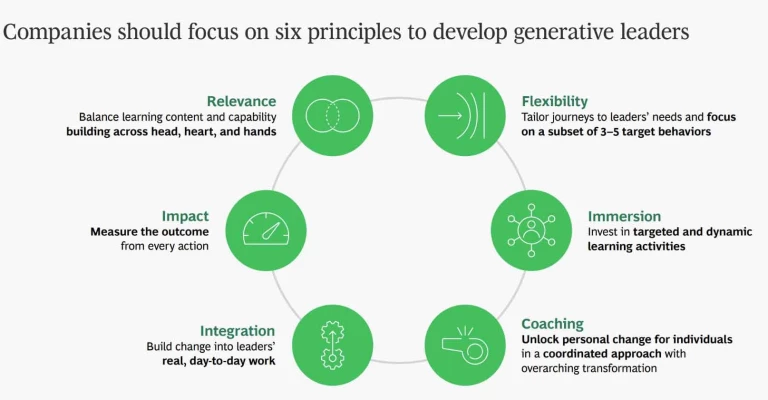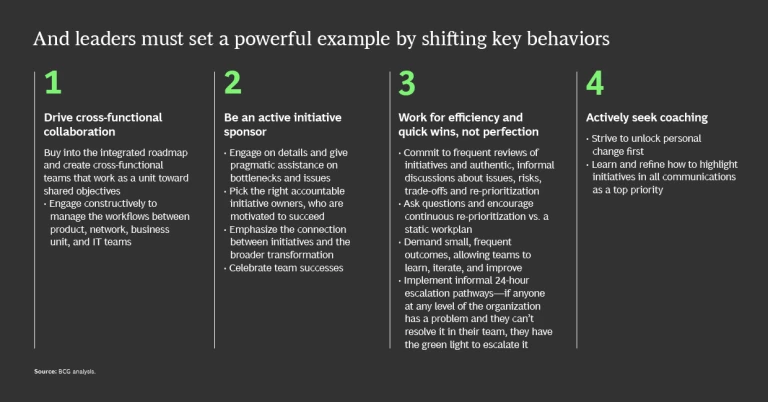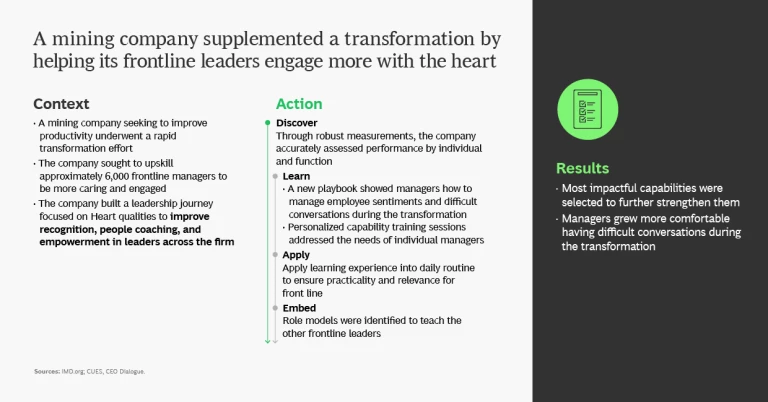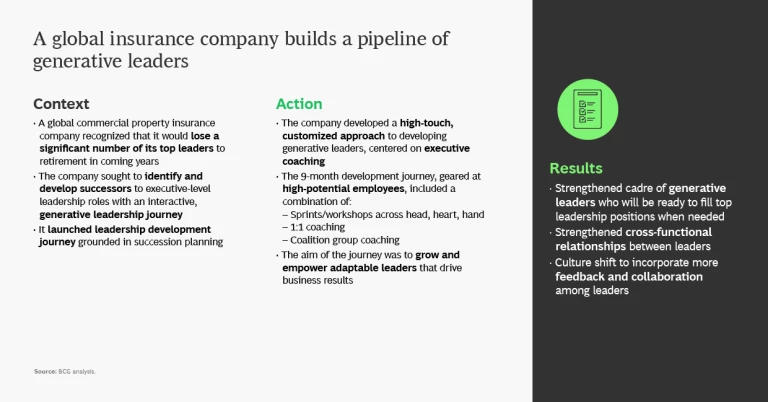The following insights are part of BCG’s Build for the Future series, based on three years of research conducted on digital transformations at major organizations around the globe.
Leadership is central to transformation success. Companies with a systematic and well-supported approach to activate leaders see transformation success rates that are three times higher than those of their competitors. Yet leader engagement has decreased significantly since the pandemic—a drop of roughly 40% in two years.
The current business environment creates a paradox for leaders. Increased complexity and volatility mean that companies face a constant need for change. Yet the accelerating pace of business means that CEOs often struggle to manage complex transformation programs. Success requires a new approach to leadership—what we call generative leadership . BCG’s growing body of research shows that CEO engagement has a dramatic impact on transformation success. Aligning leadership with a powerful purpose is one of six attributes empirically identified as an essential component of short- and medium-term company performance. (See “Build for the Future.”)
BUILD FOR THE FUTURE
Our
From this research, we identified the path that companies must take to become built for the future. We’ve reconciled the challenge of what these companies need to do (identifying which initiatives drive the most value by sector) with how to do it (determining which capabilities drive success and how to build them fast). CEOs can tailor this new playbook to their company-specific change agendas. Learn more about our Build for the Future campaign
At a Glance
BCG research has distilled generative leadership down to three core insights.
Leaders of future-built companies are generative across the head, heart, and hands—as one team. The head refers to reinventing business to serve people, planet, society, and shareholders; the heart involves inspiring and enriching the human experience; and the hands entails executing and innovating through supercharged teams. Among companies that fully engage the head, heart, and hands, 96% see a sustained performance improvement, compared with just 33% that partially engage.
Leaders focus on a purpose that goes beyond the bottom line. Increasingly, leaders need to develop an authentic purpose to create value for people, for society and for the planet—not just investors. Moreover, they must embed environmental, social, and governance (ESG) into their overall strategy, not keep it off to the side.
Companies face common barriers. A shift in C-suite behaviors can help organizations drive faster end-to-end, cross-functional outcomes and overcome common barriers around near-sighted business targets, insufficient funding, and business unit misalignment. Building and scaling generative leadership across the organization and beyond the C-suite requires following a set of six key principles—relevance, impact, flexibility, integration, immersion, and coaching.
The Next Steps for Leaders
Here’s what business leaders need to know about generative leadership.
Building generative leadership is a process. Building for the future through generative leadership is a process that takes continued effort over time. Yet it pays financial and nonfinancial benefits as companies move up in terms of their maturity.
Many organizations mistakenly neglect the heart aspect of transformation. Leading with the heart is the most valuable to employees, but leaders most commonly neglect this dimension. Starting with a purpose and spearheading authentic ESG efforts are foundational to the leading with the heart, both with high impact across people and business results.
Purpose has power. The key to leadership from the heart and the head begins with a purpose—among the top three success factors for transformation, having a clear purpose ranks first. Purpose aligns every element of the business; it is how employees see themselves as part of something bigger, regardless of their role. Purpose has tremendous impact when done well—companies with a clear purpose have 8% less turnover, a two-fold increase in productivity, and 3.25 times the involvement in transformation initiatives. Perhaps most important: they are twice as likely to have a high TSR.
Generative Leadership in Practice
Here’s how top-performing companies are incorporating generative leadership into transformations.
Boosting the performance of frontline leaders. A mining company launched a transformation to improve productivity. Management identified a critical constituency: the roughly 6,000 frontline leaders who directly managed employees. The company built a set of tools related to the heart aspect of transformation to improve recognition, coaching, and empowerment among this group. A playbook gave frontline managers a set of tools to apply, such as how to manage employee sentiment and how to have tough conversations while still remaining empathetic. Individual measurements identified the areas of improvement for individual managers, which the company addressed through personalized learning sessions. That process was replicated at the level of functions and units, leading to a dramatic increase in effectiveness among frontline managers.
A global insurer builds a pipeline of senior leaders. A global commercial property insurer realized that it was on track to lose a significant share of its senior leaders to retirement. In response, it launched a program to identify and train the next wave of C-suite leaders. It launched a nine-month journey, focused on the principles of generative leadership, to grow and empower adaptable leaders that were equipped to drive business results. High-potential employees underwent immersive workshops in head, heart, and hands concepts, along with one-to-one coaching and group sessions with peers. As a result, the firm built a cadre of generative leaders ready to step in as current leaders retire. The company also built a strong culture of feedback, collaboration, and cross-functional relationships among the group.
Learn more about what it takes to build for the future through generative leadership in the slideshow below.



